Well, it is somehow another new year! Time just keeps on going, doesn’t it?
One of my favorite end-of-year activities is thinking back over all the books I read that year, and sharing my favorites with others. I read 32 books in 2022, which achieved my arbitrary Goodreads goal of 30 books. ( I thought I had just squeaked by with 30 books, but it turns out a couple of them had not been recorded as “Read” on goodreads!) Though to be fair, one of the “books” was actually a short story and another was a novella. They help balance out some of the super long books like Michener’s Alaska. According to my Year in Books, I read 12,531 pages. Not bad.
Overall I would say it was a pretty good year for books. I generally know my own tastes well enough that I don’t end up reading much that I would rate below 3 stars, but sometimes you get an unlucky run of so-so 3 star books in a row. I did have some 3 star books, but even those were mostly not bad. For example, I started reading pulpy sci-fi books set in the Battletech universe (originally developed for tabletop RPGs, later for the Mechwarrior video game series, which I love). They weren’t well-written books so I gave them 3 stars, but I sure had fun reading them (and in fact I just started another one the other day).
But let’s cut to the chase. Of the 30-ish books I read this year, what were the top 5? It’s always hard to choose, but here goes, in no particular order:
A Psalm for the Wild-Built and A Prayer for the Crown Shy by Becky Chambers
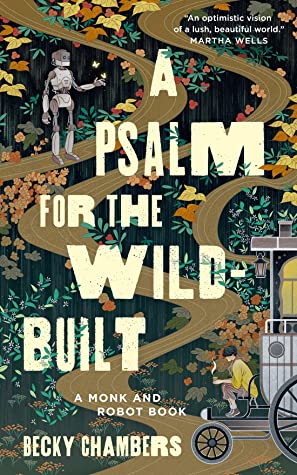
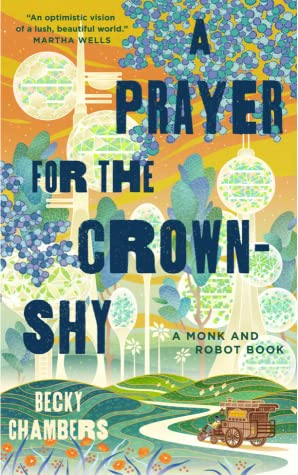
Yeah, that’s right, I am immediately going to cheat and list two books as one. But these are parts 1 and 2 of a series, they’re not very long, and they’re both great. Also, coincidentally, they pretty much bookended my year. I read Psalm in the first couple weeks of the year, and Crown Shy in the last week of the year!
Sci-fi fans love to defend the genre by talking about how the speculative framing allows more freedom to conduct thought experiments with how things could be rather than sticking to how things actually are. The problem is, most sci-fi doesn’t do this very well. Or rather, it does this but very narrowly, often focused just on fancy new technology. So you end up with “what if [insert current political conflict/war/controversial issue] but in space?” It’s inevitable, and it’s not even necessarily a bad thing, but I am always on the lookout for authors who take it a step farther and genuinely imagine alternative ways of life.
Not just “what if we had fusion reactors” or similar, but “what if society was organized in a fundamentally different way?” Ursula K LeGuin did this all the time, and it’s why her stuff is so good (it also helps that she is just an amazing writer). Kim Stanley Robinson does this, as does Ada Palmer in her Terra Ignota series. With the Monk and Robot books, Becky Chambers is doing something similar but in a particularly interesting way.
Instead of holding a mirror up to our current state of affairs, and using sci-fi to highlight all of the terrible things by placing them in an exaggerated analog of our world, Chambers recognizes that our world is so messed up that its problems are obvious. She doesn’t need to rub our noses in them and say “Wake up sheeple, look how terrible things are!” We know, and she knows that we know. Instead, she skips that part and instead imagines a world where all of those terrible things are gone. Solved. No longer problems.
This series dares to do something that is almost unheard of and imagine an actual utopia. Not “utopia, but at what costs?!” Just… utopia. A really nice place to live. A world where everyone’s needs are met, where people live sustainably, in harmony with each other and the environment. Where exploitation, unchecked growth, discrimination, inequality, even money itself, are gone.
It is hard to express the physical and emotional relief that I feel when I read these books. They are comforting and relaxing and nice. Their depiction of a warm and positive vision of how life could be is just wonderful. They don’t get into the nitty gritty of how the utopia works, or how we get there from here. They just exist to demonstrate that it is possible to imagine such a world, and show us how nice that feels. And then they ask an interesting philosophical question: In a world where everyone’s basic needs are met, what gives us purpose? What do people “need” in the broader, more philosophical sense?
These are easy, comforting reads, but they’re not just fluff. They somehow manage to be easy and comforting while confronting real existential questions and daring to imagine a better world. They’re great science fiction, and simply by imagining something better, they are an act of resistance against the problems we currently face. As LeGuin put it:
We live in capitalism. Its power seems inescapable. So did the divine right of kings. Any human power can be resisted and changed by human beings. Resistance and change often begin in art, and very often in our art, the art of words.
Ursula K LeGuin
I’ll finish with a quote from the first book:
You keep asking why your work is not enough, and I don’t know how to answer that, because it is enough to exist in the world and marvel at it. You don’t need to justify that, or earn it. You are allowed to just live.
A Psalm for the Wild-Built, Becky Chambers
The Goldfinch by Donna Tartt
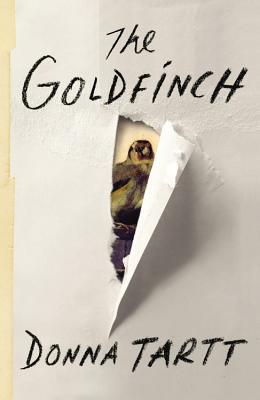
I try to mix up the genres that I read, but honestly I mostly read sci-fi and fantasy of one kind or another. Partly because futuristic technology and magic are cool, but also because it’s nice to have a layer of genre to act as a shield between me and the fictional stories that I read. I find more realistic stories are generally more stressful because I know that they really could happen. (Well, at least, they’re more possible than magic spells and faster than light travel…)
I may need to re-evaluate this aversion to realistic fiction, however, because when I do read it I tend to get a lot out of it. I don’t think it’s correct to say that I “enjoy” it as much as SFF, but because it is realistic it also tends to touch on real world emotions and challenges in a way that resonates.
All of which is to say, The Goldfinch is not my normal type of book, but once I finally got around to reading it, I thought it was great. Definitely made me anxious to read about the characters making increasingly terrible decisions but it did a great job of walking the line between popular page-turner and “literary” novel. It is a long, engrossing book, and somehow makes something I have little interest in (Dutch golden age art, antique furniture, criminal enterprises that steal and/or make forgeries of those things) very interesting. The writing is often wonderful too. I found myself almost highlighting a lot of passages, but most of my actual highlights are from the very end of the book, where the author really digs into the meaning of the book’s events.
I don’t hand out 5 star ratings unless I really like a book, but between the great story and the deeper meaning, The Goldfinch gets 5 stars from me.
That life—whatever else it is—is short. That fate is cruel but maybe not random. That Nature (meaning Death) always wins but that doesn’t mean we have to bow and grovel to it. That maybe even if we’re not always so glad to be here, it’s our task to immerse ourselves anyway: wade straight through it, right through the cesspool, while keeping eyes and hearts open. And in the midst of our dying, as we rise from the organic and sink back ignominiously into the organic, it is a glory and a privilege to love what Death doesn’t touch.
The Goldfinch, Donna Tartt
How High We Go in the Dark by Sequoia Nagamatsu
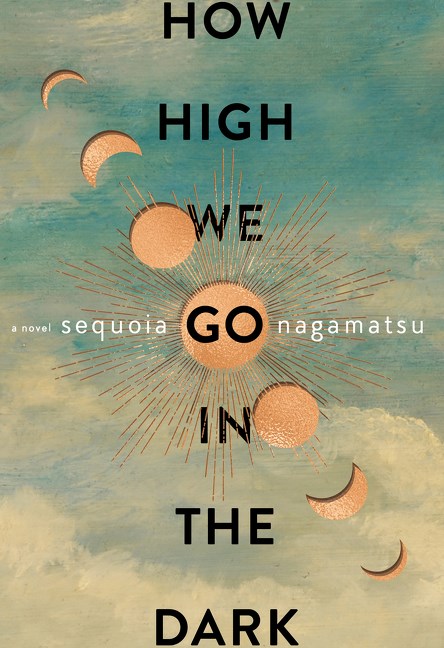
Ok, back to genre. This was one where the protective layer of genre was very helpful, because even with a (fairly surreal) science fiction setting, this book was hard to read at times. How High We Go in the Dark is a series of interconnected short stories, spanning a huge range of time and space, but they are all about death. The framing event for the stories is that archaeologists digging in thawing permafrost unearth bodies from long ago that also carry a deadly virus. This virus spreads and ravages the world, and most of the stories in the book are in the aftermath of this pandemic.
One of the problems with speculative fiction is that when you try to summarize what a story is about, it can come across as silly or ridiculous, with none of the emotional weight that the story has when you read it. So with that in mind, here’s a sampling of some of the central ideas in the stories in this grim but beautiful book:
- Hotels that have been converted into massive funeral parlors where you can rent a room to spend time with your deceased loved one while awaiting their cremation.
- A scientist whose child has died of the plague is searching for the cure, but in the process inadvertently breeds a pig capable of speech, who he adopts as a surrogate child.
- An employee at a euthanasia amusement park, where terminally ill children are treated to one last fun day before riding a ride that ends their lives, falls in love with one of the parents. (As a parent, this story pretty much emotionally destroyed me.)
- An artist creates ice sculpture boats out of the remains of the dead that sail out to sea and then melt.
There are more stories but that gives you an idea. The blurbs for this book say that fans of Station Eleven and Cloud Atlas will like this, and since I loved both of those books I guess they were right. Like Cloud Atlas, the different stories are interconnected in interesting ways, and it was fun to identify these as I made my way through the book.
I think it’s a little misleading to call this a novel – it is really a story collection, and like any story collection the stories varied in how well they worked for me. But overall, I thought this book was quite good. Weird and dark and depressing, yes, but very good.
Persepolis Rising, Tiamat’s Wrath, and Leviathan Falls by James S.A. Corey
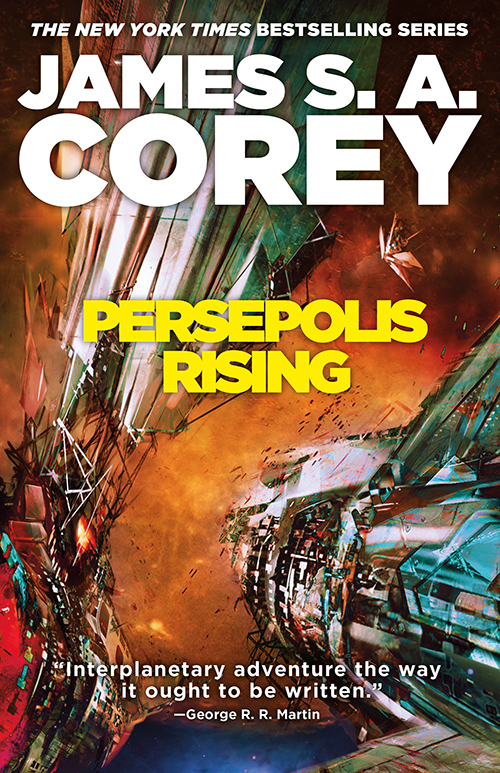
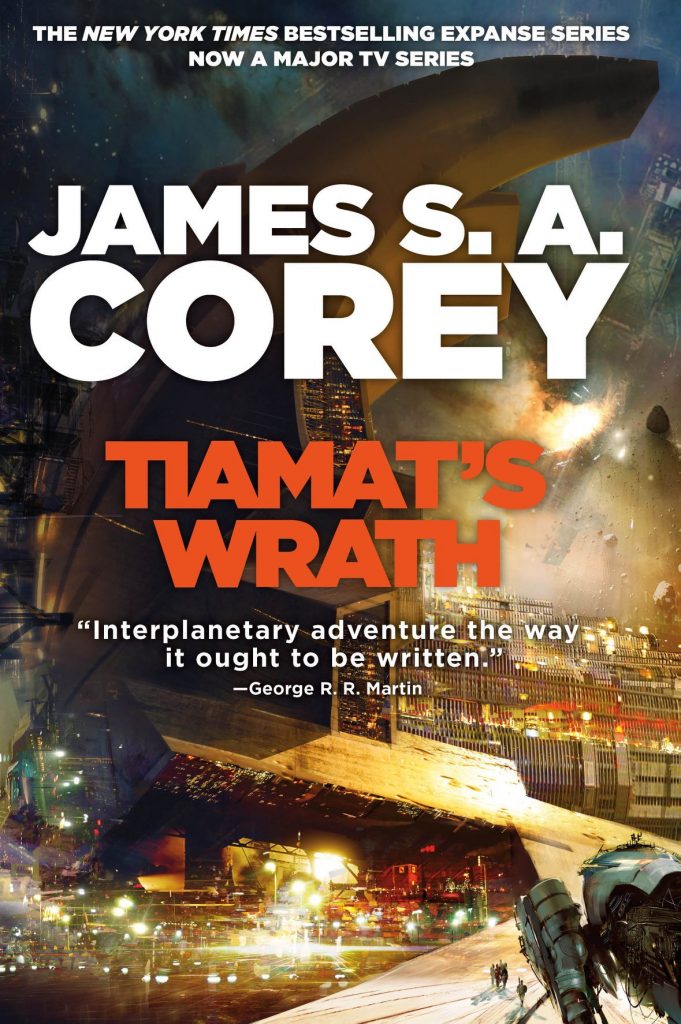
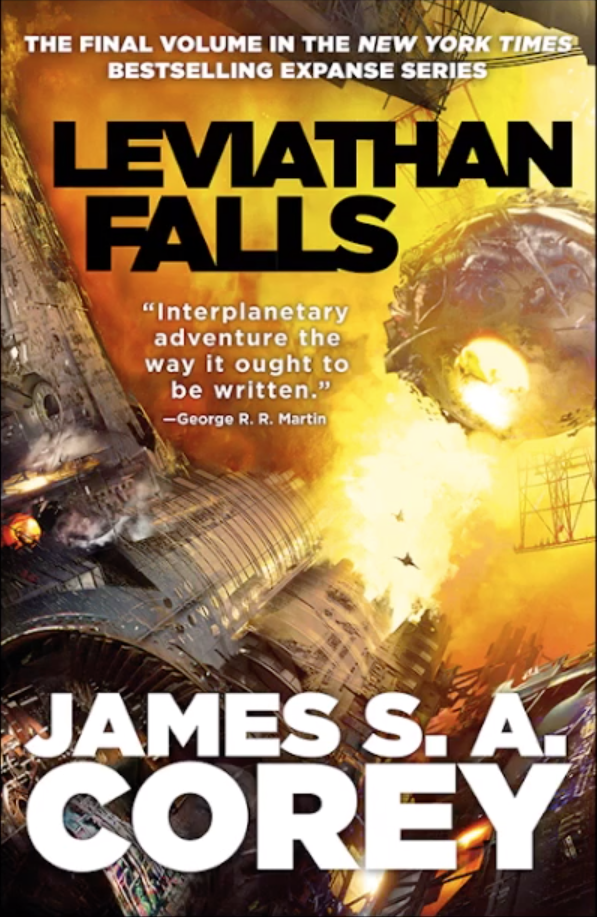
Yep, cheating again and grouping several books from a series. When you read a lot of sci-fi and fantasy, you get used to series. Long, epic stories split up into 3 books, 5 books, 10 books, sometimes even more. In certain notorious cases, these series are never finished, or must be finished posthumously by another writer. In many other cases, the first book or two are great, but things gradually get formulaic, or bloated, or weird, or otherwise lose the magic of the initial books.
I am happy to report that The Expanse series does not suffer these fates. It is a 9 book series, and it is consistently excellent, and it is complete, and the ending was good. That is… basically unheard of.
This year I read a lot of books by Daniel Abraham (one of the two authors who write under the pen name of James S.A. Corey). I read two books in the Dagger and Coin fantasy series, and three novels and a novella in the Expanse series. Apparently I like Daniel Abraham’s writing! Thinking about it, he seems to particularly specialize in characters with personalities that can be described as different variations on “world-weary snark”.
I feel confident saying that The Expanse is one of the greatest sci-fi series ever. It is not particularly “deep” – don’t go looking for a lot of symbolism or hidden meanings – but it’s a truly great story, set it a wonderfully developed science fiction universe. I particularly appreciate how, despite having plenty of things in the series that violate the laws of physics in the interest of telling a good story, those instances of rule breaking are well thought-out and limited.
I would not call The Expanse “hard” sci-fi, but I would say that it does a great job of getting the science close enough to right when it can. And more importantly, it uses the limitations of real-world physics as a driver of the story, rather than a hindrance. Stories where anything goes are often less interesting than stories where there are some constraints, and by being realistic where possible, The Expanse ends up telling some great stories. It also makes the instances where things do not follow the laws of physics much more significant, both for the reader and the characters in the story.
As an aside: I generally don’t like the distinction between “hard” and “soft” sci-fi because in certain segments of SFF fandom, “hard” sci-fi (ostensibly, sci-fi that somewhat tries to obey the laws of physics) is seen as somehow better than “soft” sci-fi (sci-fi that is less concerned with physical sciences and more interested in social sciences, philosophy, etc.). This distinction between hard and soft sci-fi is so blurry as to be meaningless and often has sexist overtones.
The worldbuilding in The Expanse is great. The geopolitics of a future where humans have spread throughout the solar system (and then beyond), the messy, complicated, diverse vision of the human future in space, is just excellent. The stars of the show are the “Belters”: humans who have grown up in the cities of the asteroid belt, who are extra tall and thin due to low gravity, who are more comfortable in a space suit than on the surface of a planet, who speak “Belter creole” – a mix of various languages that is just at the edge of comprehensible to the reader. But the other major factions (Earth, Mars, and in the later books, the Laconians) are all interesting and distinct and well done.
If you haven’t read The Expanse and are up for a long but consistently excellent series with a lot of space battles and solar system geopolitics, I highly recommend it. (The show is very good too, and relatively faithful to the books, though it stops at book 6.)
I think about all the things we could have done, all the miracles we could have achieved, if we were all just a little bit better than it turns out we are.
Leviathan Falls, James S.A. Corey
What a crew does with its rail-gun capacitor in the privacy of its own ship shouldn’t be anyone else’s business.
Leviathan Falls, James S.A. Corey
The Buried Giant by Kazuo Ishiguro
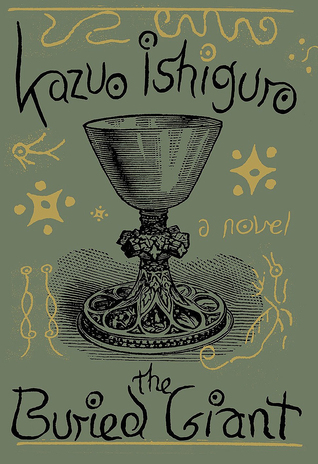
This is an odd one. It’s a fantasy novel about an elderly couple who set out on a quest to visit their son, but the whole country is afflicted with a “mist” that robs people of their memories. The couple aren’t entirely sure that they even had a son, or where he lives. They end up traveling with Wistan, a Saxon warrior, and Edwin a boy who has been shunned from his own town because he has been contaminated by a bite from an “ogre”. Along the way they meet up with Gawain, as in King Arthur’s nephew, who is now an old man, and Wistan and Gawain have an oddly tense relationship from the start.
The story unfolds slowly and carefully, and everything is suffused with an unnerving unreal quality because most of the characters have no reliable long term memories. Nothing is what it seems, and everything comes with layers of meaning that I am sure I only dimly perceived in most cases. Characters behave strangely, not trusting themselves or others. Half-forgotten arguments from long ago appear and fade, and everything has that tip-of-the-tongue can’t-quite-remember feeling to it. It is a real feat to write a story that continually teeters on the edge of reality like this, and the writing in this book is really lovely. Simple, but somehow also not simple at all. It is only toward the end after a long, slow buildup that things are really made clear, but the payoff is worth it. The final scene left me holding back tears as I listened to it while cooking dinner.
I can understand why a lot of readers, used to modern fantasy stories that are relatively fast-paced, plot-driven, and without a lot of layered meanings, might not like this book. Honestly, I would probably have had trouble with the slow pace if I had been reading instead of listening to the audiobook. But it has stuck with me in a way that most books don’t. It is a haunting book about whether it is better to remember or forget, and I highly recommend it if you’re in the mood for something a bit challenging.
“Yet are you so certain, good mistress, you wish to be free of this mist? Is it not better some things remain hidden from our minds?”
The Buried Giant, Kazuo Ishiguro
“It may be for some, father, but not for us. Axl and I wish to have again the happy moments we shared together. To be robbed of them is as if a thief came in the night and took what’s most precious from us.”
“Yet the mist covers all memories, the bad as well as the good. Isn’t that so, mistress?”
“We’ll have the bad ones come back too, even if they make us weep or shake with anger. For isn’t it the life we’ve shared?”
Honorable Mentions
So those are some of my favorite books from this year. But just as I couldn’t resist cramming more than five into my “Top 5” list, I can’t just leave it there. Here are a few more that were not in the Top 5 but which are worth mentioning:
- The Dawn of Everything: A New History of Humanity – This was a frustrating book. It offers a novel take on world history, where humans are active, imaginative agents in our own fate rather than passively at the mercy of our environment. It advocates a view of prehistory that breaks free from modern preconceptions about how societies can be structured, and challenges a lot of the “conventional wisdom” about centralization of power and the shift toward what we call civilization. But it also very clearly does some cherry picking and has a strong bias in how it interprets history. Still, worth reading because it stirs the pot and challenges some fundamental ideas.
- Exhalation by Ted Chiang – Excellent collection of sci-fi stories, often dealing with philosophical questions like free will, sentience of AI, etc. Very very good.
- A Memory Called Empire by Arkady Martine – Sci-fi dripping with political intrigue, set in the capital of an interstellar empire that is strongly influenced by the Aztecs. Very different and strange but in a good way.
- Embassytown by China Mieville – Quite possibly the weirdest sci-fi story I’ve ever read. I only gave it 3 stars because it very nearly falls apart under the weight of all its weirdness, but if you want to read something really different, worth a try. It’s fundamentally a story about how the ability to say things that aren’t true – to use metaphor – underpins all of human language and thought. But it explores this by way of an alien species that speaks with two voices at once and which can’t lie or understand lies.
Ok, I’d better stop there or I’ll just write about all 32 things I read this year. Your turn: what were your favorite books of 2022? I always like adding things to my to-read list!

Leave a Reply